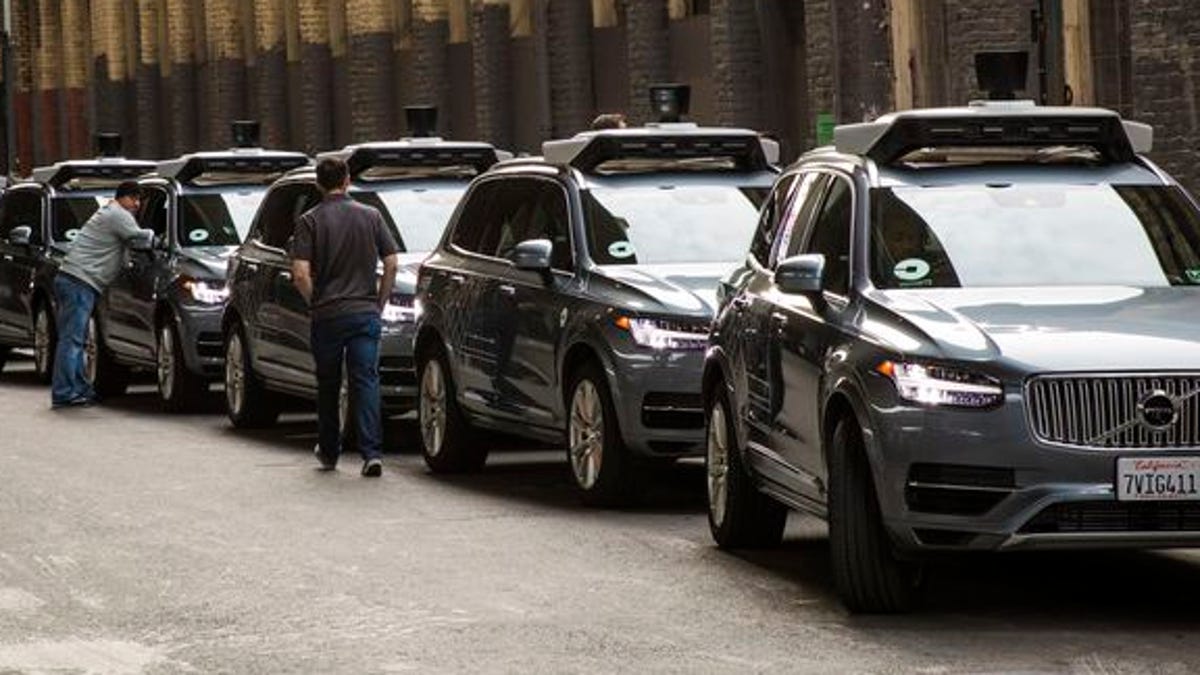Waymo lawsuit against Uber referred to federal prosecutors
The ride-hailing company may face criminal charges related to lawsuit over self-driving car tech.

Waymo's lawsuit over self-driving cars moves ahead.
The federal judge presiding over Waymo's lawsuit accusing Uber of stealing trade secrets has asked federal prosecutors to investigate the matter.
In an order issued late Thursday, US District Court Judge William Alsup asked the Department of Justice to investigate possible theft of trade secrets related to the lawsuit, in which Waymo claims Uber stole secretive self-driving car technology. Alsup said he took "no position" on whether a criminal prosecution was warranted.
In a separate order Thursday, Alsup denied Uber's motion to compel private arbitration in the lawsuit. Waymo, a self-driving car tech company and subsidiary of Google parent Alphabet, opposed the motion and has sought a public trial.
"It is unfortunate that Waymo will be permitted to avoid abiding by the arbitration promise it requires its employees to make," an Uber spokeswoman said in an email. "We remain confident in our case and welcome the chance to talk about our independently developed technology in any forum."
Central to Waymo's lawsuit is the claim that a former Google employee, Anthony Levandowski, stole 14,000 "highly confidential" files before he left in January 2016 to found his own self-driving truck startup. Uber bought that startup, Otto, for $680 million in August 2016.
Levandowski helped develop Waymo's lidar technology, a key component in self-driving cars that lets vehicles "see" their surroundings and detect traffic, pedestrians, bicyclists and other objects. Waymo claims the allegedly stolen information has benefited Uber as it's developed its own driverless car tech.
The case has captured the attention of Silicon Valley for involving two of the most high-profile tech companies, and for the fascinating details that have surfaced in court papers.
The case was made more interesting last month when Levandowski announced he would step down as the head of Uber's self-driving car program. Although he will remain at Uber, Levandowski said he will no longer work on certain autonomous vehicle technologies for the company.
In his ruling (PDF), Alsup also dismissed Uber assertions Waymo was using "artful" or "tactical" pleading to evade its obligation for arbitration by omitting Levandowski as a defendant.
"These accusations are unwarranted," Alsup wrote in his ruling. "Waymo has honored its obligation to arbitrate against Levandowski by arbitrating its claims (concerning employee poaching) against Levandowksi."
The idea of self-driving cars has captured the imagination and investment dollars of the automobile and tech industries alike. Automakers from Toyota to Ford to Volvo all have projects under way. And besides Google and Uber, other Silicon Valley giants, like Apple, Intel and Tesla Motors, are betting on the tech.
Google started working on self-driving cars in 2009 and has now test-driven its vehicles more than 2.5 million miles. Uber launched its self-driving project in 2015 and has since rolled out autonomous vehicles to city streets in Pennsylvania, California and Arizona.
Waymo applauded Alsup's decision to deny Uber's request for private arbitration.
"This was a desperate bid by Uber to avoid the court's jurisdiction," Waymo said in a statement. "We welcome the court's decision today, and we look forward to holding Uber responsible in court for its misconduct."
The trial is set to begin in October.
CNET's Dara Kerr and Richard Nieva contributed this report.
First published May 11, 7:45 p.m. PT.
Update, May 12 at 3:13 p.m.: Adds comment from Uber spokeswoman.
It's Complicated: This is dating in the age of apps. Having fun yet? These stories get to the heart of the matter.
Tech Enabled: CNET chronicles tech's role in providing new kinds of accessibility.

